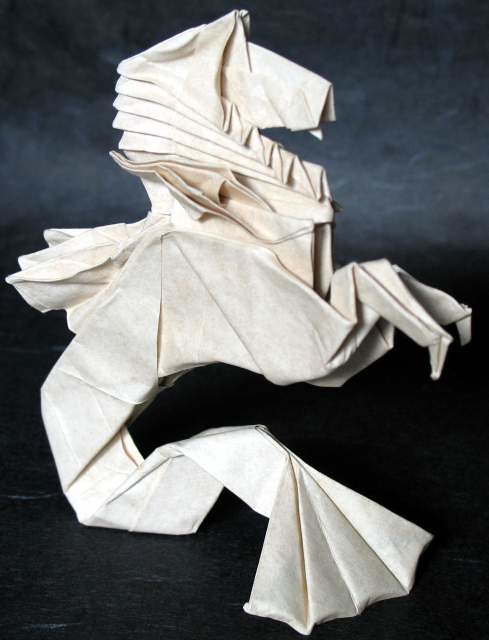hippocampus /HIP-oh-CAMP-əs/. noun. A mythological sea creature with the forelegs of a horse and a fish or dolphin tail. A fish of the genus Hippocampus, AKA a sea horse. An area of the cerebral cortex that forms a ridge on the floor of the lateral ventricle of the brain (so named because its shape, in cross section, looks like a sea horse. This part of the brain plays an important part of consolidating short-term memory to long-term memory and in spatial memory. From Latin hippocampus, from Greek hippokampus, from hippos (horse) + kampus (sea monster).
“In Alzheimer’s disease the hippocampus is among the areas affected first, that little coil in the central core of the brain that shares a Latin name with sea horses.” (Rebecca Solnit)
“Above the banquet, in the triangle, instead of lions or leopards, we have the hippocampus, a favourite animal of the Etruscan imagination. It is a horse that ends in a long, flowing fish-tail.” (D. H. Lawrence)
“A murky, fleeting, nighttime vision, a trickle of water on glass, a momentary spasm in some deep dead end of the brain; some worthless, useless capillary burst, a hormone gurgled, something skipped a beat in the cerebellum or the hippocampus…” (Tatyana Tolstaya)
“I’m sensing intense psychovoltage in the car; if it’s a high Anchorite and we engage in full combat on Fifth Avenue, every hippocampus within a fifty-meter radius’ll get shredded…” (David Mitchell)




